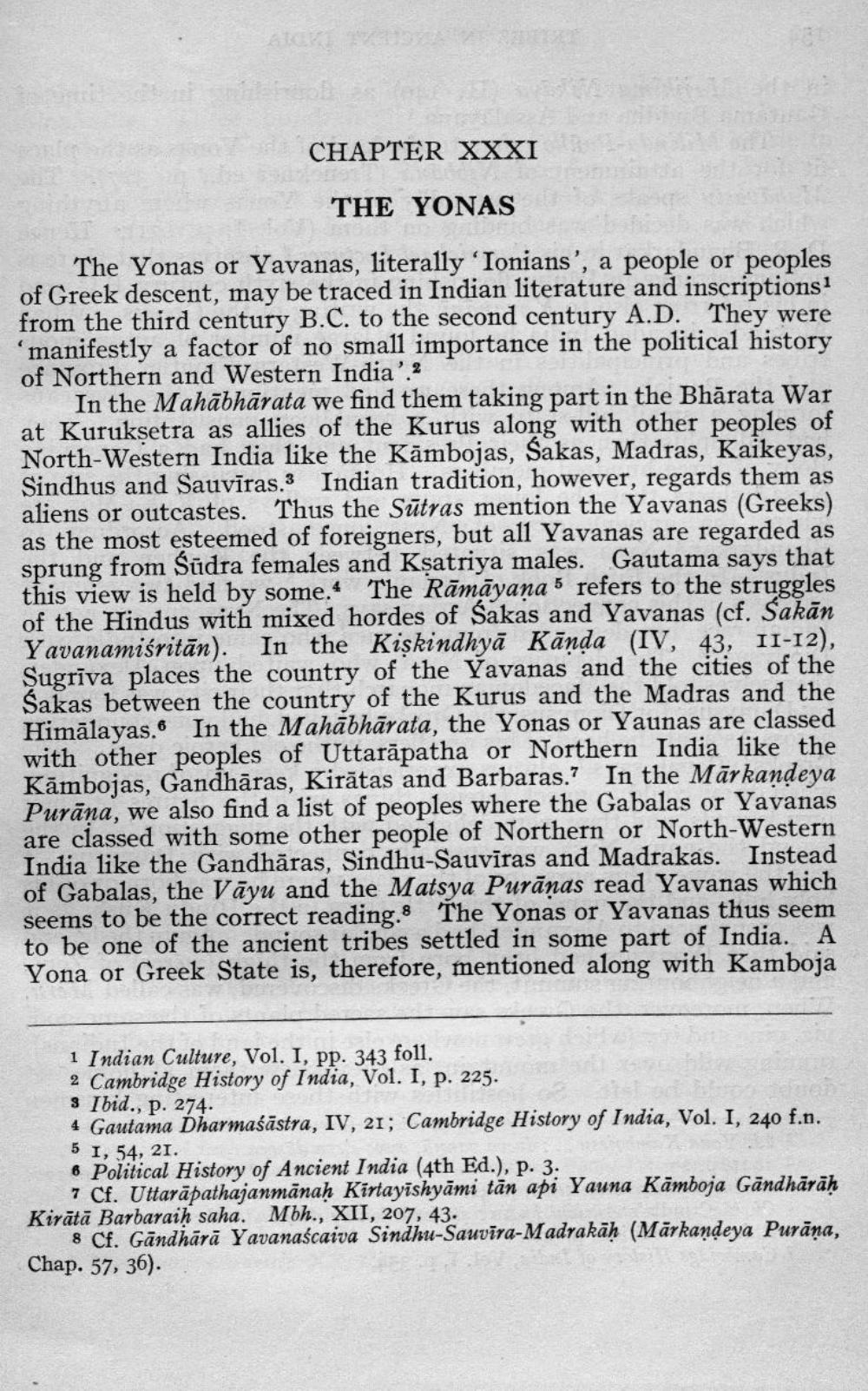________________
CHAPTER XXXI THE YONAS
The Yonas or Yavanas, literally ‘Ionians', a people or peoples of Greek descent, may be traced in Indian literature and inscriptions from the third century B.C. to the second century A.D. They were 'manifestly a factor of no small importance in the political history of Northern and Western India'.2
In the Mahābhārata we find them taking part in the Bhārata War at Kuruksetra as allies of the Kurus along with other peoples of North-Western India like the Kāmbojas, Sakas, Madras, Kaikeyas, Sindhus and Sauvīras.3 Indian tradition, however, regards them as aliens or outcastes. Thus the Sūtras mention the Yavanas (Greeks) as the most esteemed of foreigners, but all Yavanas are regarded as sprung from Sūdra females and Ksatriya males. Gautama says that this view is held by some. 4 The Rāmāyana 5 refers to the struggles of the Hindus with mixed hordes of Sakas and Yavanas (cf. Sakān Yavanamiśritān). In the Kiskindhyā Kānda (IV, 43, II-12), Sugrīva places the country of the Yavanas and the cities of the Sakas between the country of the Kurus and the Madras and the Himālayas. In the Mahābhārata, the Yonas or Yaunas are classed with other peoples of Uttarāpatha or Northern India like the Kāmbojas, Gandhāras, Kirātas and Barbaras. In the Mārkandeya Purāna, we also find a list of peoples where the Gabalas or Yavanas are classed with some other people of Northern or North-Western India like the Gandhāras, Sindhu-Sauvīras and Madrakas. Instead of Gabalas, the Vāyu and the Matsya Purānas read Yavanas which seems to be the correct reading. The Yonas or Yavanas thus seem to be one of the ancient tribes settled in some part of India. A Yona or Greek State is, therefore, mentioned along with Kamboja
1 Indian Culture, Vol. I, pp. 343 foll. 2 Cambridge History of India, Vol. I, p. 225. 3 Ibid., p. 274. 4 Gautama Dharmaśāstra, IV, 21; Cambridge History of India, Vol. I, 240 f.n. 5 1, 54, 21. 6 Political History of Ancient India (4th Ed.), p. 3.
7 Cf. Uttarāpathajanmānah Kirtayīshyāmi tān api Yauna Kāmboja Gāndhārāh Kirātā Barbaraih saha. Mbh., XII, 207, 43.
8 Cf. Gāndhārā Yavanaścaiva Sindhu-Sauvīra-Madrakāh (Mārkandeya Purāna, Chap. 57, 36).




